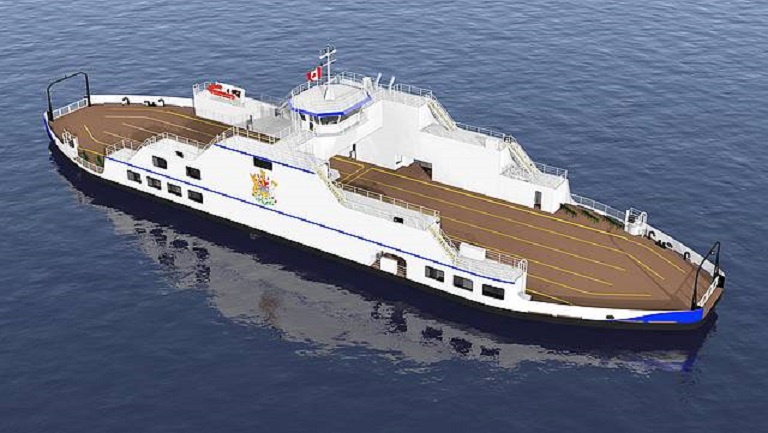German propulsion manufacturer SCHOTTEL has been awarded a contract to deliver main propulsion units for one car ferry to Vancouver-based company Western Pacific Maritime Ltd. The newly built vessel ordered by the British Columbia Ministry of Transport and Infrastructure will be equipped with four high efficiency SCHOTTEL TwinPropellers. Once operational, it will serve the Kootenay Lake in British Columbia. This move will reinforce SCHOTTEL’s strong position in the Canadian ferry market.

Reliable thrusters for dependable crossings
The main propulsion consists of four SCHOTTEL TwinPropeller units type STP 150 L (360 kW each), driven by efficient PEM motors. Featuring a propeller diameter of 1.1 metres, the STPs enable a speed of up to 13.5 knots. In order to ensure a fully reliable 24/7 service, a fifth structurally identical unit has been ordered as a spare unit. Designed by Polar Design Sales, the new vessel will be configured as a diesel-electric hybrid with all the systems, equipment and components ready for a fully electric propulsion in future.
To ensure quick and easy installation at the future operational site, the TwinPropellers will be conceived as plug-and-play units. The STPs are designed so that they can be serviced while the vessel is afloat.
Efficient, low cavitation, streamlined
The SCHOTTEL TwinPropeller is the ideal propulsion solution for vessels or applications with limited installation space, draught or propeller clearance. Based on the principle of the proven SRP, the STP ensures combined thrust and 360-degree manoeuvring power with its two co-rotating propellers. Distributing the load over two propellers boosts the propulsion system’s efficiency and noise and vibration levels underwater and on board are reduced to a minimum.
Fully electric propulsion by 2030
The 89-metre-long and 25-metre-wide vessel will be able to accommodate up to 61 vehicles and will reduce sailing waits enormously. It will be fully converted to electric propulsion by 2030, once shore power is installed and ready for use on a daily basis. As part of CleanBC, the province is working to electrify the inland ferry fleet by 2040.
The new ferry will be ready for service in early 2023 with more than double the capacity of the “MV Balfour”, which it will replace.
Source: SCHOTTEL